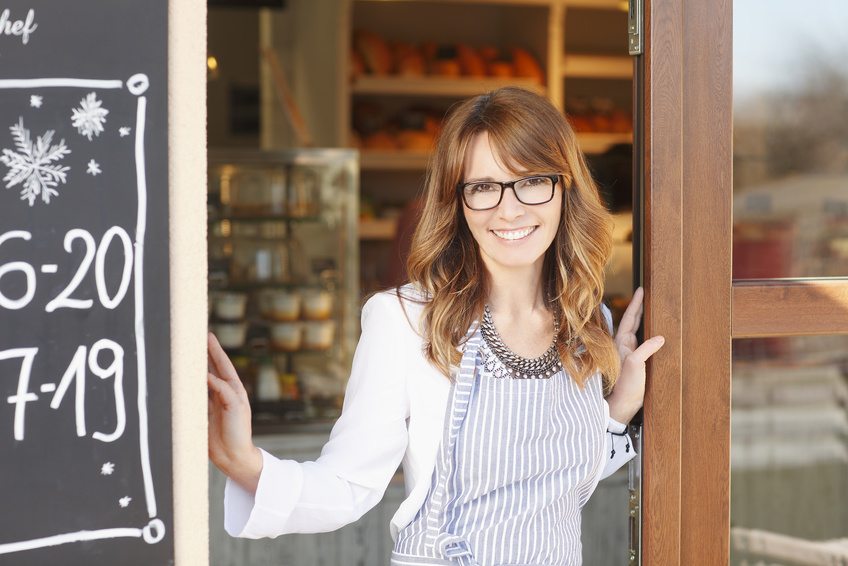By Coral Garnick
The Seattle Times.
Ollie Garrett started her collection company, PMT Solutions, in 2007. She had a five-year business plan and wanted $250,000 to get off the ground but couldn’t find a lender willing to gamble on her.
After being denied multiple times, she survived the first three years with a $50,000 loan, money from friends and family, and a second mortgage on her Kirkland condo.
The next three years, she received four smaller loans, including one for which she said the bank required a male co-signer, that allowed her to keep her business afloat.
“I never got the access to capital that I initially needed — I ended up getting it in segments,” she said. “If I could have got it all in the beginning I could have brought on clients sooner, I would have invested in more marketing sales — it hindered me.”
Garrett’s experience is a common tale for female entrepreneurs across the country, but women in Washington face an even larger gender gap than women nationwide in access to business loans and government contracts, according to a congressional report released Wednesday.
Nationally, women account for 30 percent of small businesses, yet last year they received only 13 percent of the total dollar value of U.S. Small Business Administration (SBA) loans, according to a report last month by the Senate Small Business and Entrepreneurship Committee, chaired by U.S. Sen. Maria Cantwell.
State data published by the committee Wednesday show female business owners in Washington make up nearly 29 percent of small business, but last year they received an even smaller share: 11 percent of the total dollar value of SBA loans.
“If women in Washington had received 13 percent of the SBA loans instead of the 11 percent, that would pump $13 million more into this economy — that translates to jobs and to economic growth and sustainability,” said Barbara Kasoff, president of Washington, D.C.-based advocacy group Women Impacting Public Policy.
In terms of government contracts, women-owned small businesses nationwide last year received 4.3 percent of federal contracts, while in Washington state their share was only 1.7 percent. That translates to $313 million in lost federal contracting opportunities for women-owned firms in the state, according to the report.
Although it has been 20 years since Congress set a 5percent federal contracting goal for women-owned small businesses, it has never been met — nationally or statewide.
On Wednesday, Cantwell heard from local female business owners about the challenges they face.
She also explained possible solutions outlined in Wednesday’s report and included in Senate Bill 2693, which the Washington Democrat and other member of the Senate Small Business & Entrepreneurship Committee introduced in July.
“Women entrepreneurs are a growing force in the state of Washington, with $26 billion in economic impact,” Cantwell said.
“We’re seeing more women-owned businesses in Washington, but women still face a gender gap when it comes to access to capital.”
Neither Cantwell nor the report offered reasons for the larger gender gap in Washington.
The bill focuses on three key solutions to the problems facing female entrepreneurs that were mentioned in Wednesday’s report: small-business counseling, small-business contracting and access to capital.
The bill calls for more SBA microloans of up to $50,000 to be available to female borrowers, and reauthorizes the 3-year SBA Intermediary Lending Pilot Program that formed out of The Small Business Jobs Act of 2010.
That program would improve access to loans between $50,000 and $200,000, helping fill a gap not met by traditional private lending, Cantwell said.
The bill would also allow sole-source federal contracts to be awarded to women-owned small businesses, meaning no other companies could bid on the contractual services needed.
It would place women-owned businesses on equal footing with other disadvantaged groups.
“When [women] can qualify to get access to federal contracts … we think that is something that would help women grow their businesses,” Cantwell said.
Irene Reyes has been lucky in securing loans — she started her safety-supply company, Excel Supply Company, 20 years ago in Fife, and Wednesday she finished signing her third SBA loan — it was for $650,000, she said.
Reyes also holds multiple federal contracts through the General Services Administration to supply gloves, medical and cleaning supplies, and other products to a variety of government agencies.
She says that for women to get a loan, they need to know how to describe their dream.
“All banks have different ways of handling SBA loans,” said Reyes, who over the years has put up everything from her inventory to her home as collateral for loans. “You’ve got to be able to tell the bank your story, and if you are not good at it, even if your credit score is perfect, you are not going to get it.”
Another large part of the Senate Bill — named The Women’s Small Business Ownership Act of 2014 — is increasing resources for small-business counseling and training services for women.
Washington has three SBA-operated women business centers — in Seattle, Lacey and Spokane. These provide business training and counseling to female business owners and so far have helped start 116 new businesses in 2014.
But the centers continue to operate on funding levels set 15 years ago, despite increasing needs, Cantwell said.
“Just think how many more great services and great products could be created — and more importantly, how many more jobs — if [women] had the support and access to capital,” Cantwell said. “We want an economy that has full economic participation. To get that, you need to empower women.”














































































































































































































































































































































































